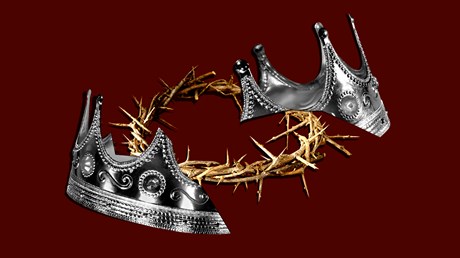The resurrection message draws power from God’s kingship. But we often miss it.

In gospel presentations today, Christ is often reduced to a mere name, personal identifier, or alternative way of referring to Jesus. “In Christ alone,” and the like, is the language we find in our songs and theology textbooks. To most Christians, Christ is equivalent to Jesus.
Christ is a title. But to treat Jesus and Christ as equivalent terms is a huge mistake.
On the one hand, it is true to say, “Jesus saves” and “Christ saves.” Likewise, one could truly say, “Matt teaches” and “the professor teaches” because that accurately reflects my job title. But Matt does not mean the same thing as professor. Christ is comparable to His Majesty if we’re describing an English king. It is a special title designed to bring renown. Christ is the title for the universally significant Davidic king.
Failure to treat the Christ as a title is one of the reasons why kingship has been missing from the gospel.
Forgiveness without kingship? Our haste to get what we so badly need causes us to misunderstand how forgiveness is available. What is foremost in our minds when we consider the gospel is a transaction at the cross: Jesus is Savior, Redeemer, atoning sacrifice, and Lamb of God. Perhaps he has some vague authority too as Lord.
We fail to see that forgiveness flows not just through a person, but through a person in his official capacity as king—crucified, raised, and reigning. While serving as king at God’s right hand, he is also the high priest and the sacrificial offering that covers our sins. As will become clear, Jesus’ forgiving power cannot be separated from his royal authority as head of a new creation.
Although the foundational ...
from Christianity Today Magazine
Umn ministry


.gif)

.gif)
.gif)
